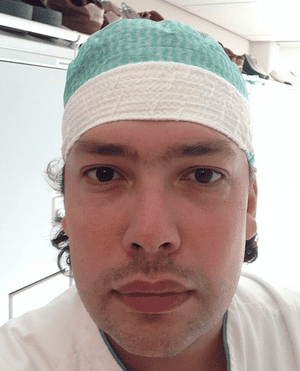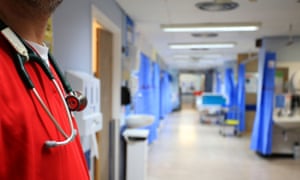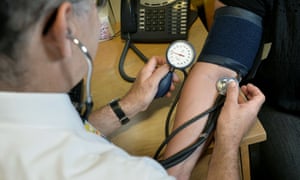The Dutch government has voiced hope that the UK will join 20 countries to set up a safe abortion fund to fill the gap left by Donald Trump’s “global gag rule”.
Lilianne Ploumen, the Dutch international development minister, is leading an international campaign to raise $ 600m (£480m) to compensate for the Trump administration’s ban on funding for NGOs that provide abortion or information on the procedure to women in developing countries.
Belgium, Denmark and Norway have joined the Netherlands in pledging $ 10m each, while at least 15 other countries are preparing to join the scheme, including Canada, Cape Verde, Estonia, Finland and Luxembourg.
The British government has yet to declare whether it will sign up to the initiative, prompting concerns from British Labour MPs that Trump’s ban could undermine the Department for International Development’s work in promoting the health and education of poor women around the world.
Ploumen said she had contacted the international development secretary, Priti Patel, and her DfID predecessor, Justine Greening, who serves as minister for women and equalities.
The British government and the Netherlands were working closely on international family planning topics, Ploumen said, voicing hope that the UK would join the latest initiative. “It is up to them to voice their support. They are a strong partner in all of this so I do hope they will be able to join.”
“The UK has been a great champion of international cooperation and not only when there were Labour leaders in charge,” she said, praising David Cameron and Theresa May.
The Dutch government wants donors to step in to support family planning programmes.
Campaigners fear the ban will choke off funding for maternal health services and work to combat Aids, malaria and the Zika virus.
Already, 3m unsafe abortions for 15- to 19-year-old girls are carried out each year, the World Health Organisation estimates, leading to lasting health problems and, in some cases, the mother’s death.
The Dutch minister voiced optimism that a coalition of international donors – governments, foundations, companies and individuals – could raise the money, despite tepid responses to international fundraising drives for humanitarian emergencies in Syria and Yemen.
The $ 600m goal was a “very ambitious target” that “signalled the US has been a great partner in the last years”. But she acknowledged that countries were struggling to “make ends meet and it is really unfortunate that the US has now given us another challenge”.
The Dutch government has also approached US foundations. A few individuals have handed over money in envelopes to the Dutch embassies in Washington and London, prompting the creation of the fundraising page at SheDecides.com
NGOs have praised the Dutch government and other countries, but fear the plan may not go far enough..
We are counting on the UK government to continue supporting the family planning cause
“We are witnessing a new version of the global gag rule,” said Irene Donadio, an expert at the International Planned Parenthood Federation (IPPF). “It has been enormously expanded and that will affect expenditure on all global health programmes. We know that at a minimum it could be $ 600m a year, but it could be much more.
“We admire and support those governments who want to stand up for women and their dignity, but we are not sure this will fill the gap or how quickly it will fill the gap.”
The IPPF had “always admired the UK’s commitment to family planning”, but “could not help noticing that the UK has not been very vocal [on the global gag],” Donadio added. “We are counting on the UK government to continue supporting the family planning cause.”
A DfID spokeswoman did not address a question about whether the UK would contribute to the international fund, saying: “The UK is a global leader on family planning, sexual and reproductive health and rights. We are continuing to work closely with partners, including governments and civil society, to deliver this, and are stepping up our leadership even further by hosting a major international summit this summer to secure commitments that increase access to family planning services for women and girls in the world’s poorest and most fragile countries.”
Aid experts have voiced concern that Brexit will damage Britain’s international development role, by eroding budgets and prompting an isolationist turn.
But Ploumen voiced optimism that the UK would not shrink from its promises. “Listening to your prime minister, she has voiced the importance of Britain in the world on several occasions, and international solidarity is part and parcel, I would assume, of that relationship with the rest of the world.
“If you are a trading nation, if you are an open economy like the UK and the Netherlands, there is a deep interest in a stable world.”
Dutch minister calls on UK to join safe abortion fund after Trump ban


